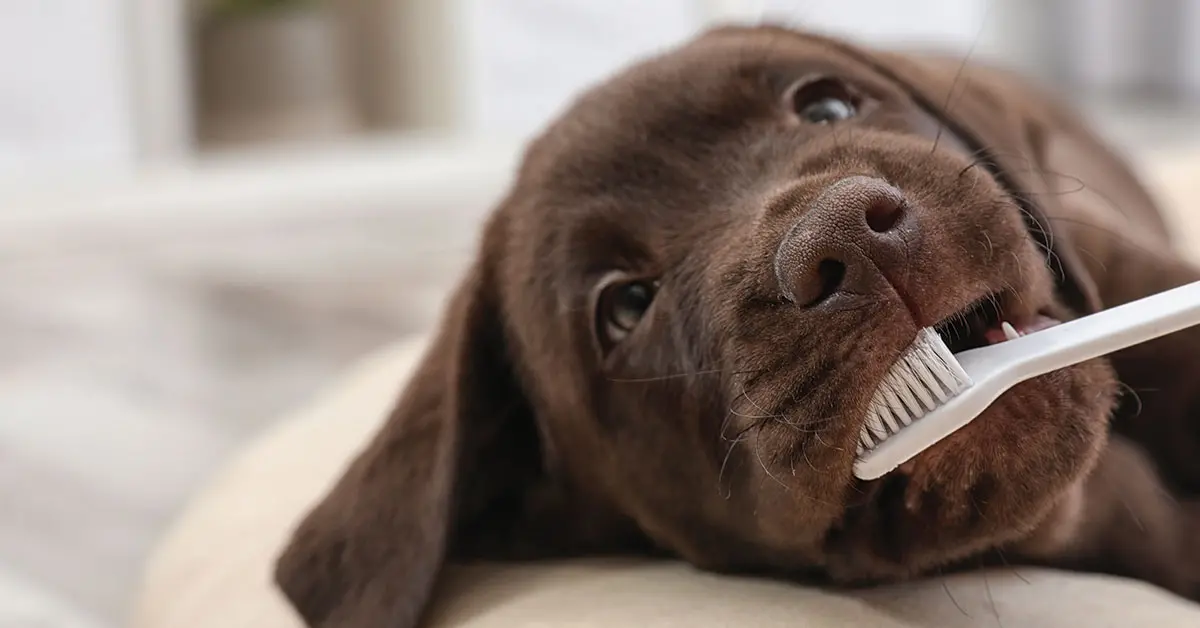According to the American Veterinary Dental Society (AVDS), 4 out of 5 dogs over the age of 3 have some a periodontal disease, leading to extra care and big bills, more than enough of a reason to start focusing on their dental health today. Today, we’ll tell you how to brush your pet’s teeth!
You brush your teeth every single day, and you know how important it is for your health. How often do you think about your pet’s dental health? Probably not enough. Dental disease can lead to serious health issues with your pet, including heart problems. Do you know how to brush your pet’s teeth? If not, we can help!
1. We recommend that you brush your pet’s teeth daily.
All you need is a pet-friendly toothpaste and a soft-bristled toothbrush. Make sure that the toothbrush is made for pets or a human toothbrush that is the correct size for your pet’s mouth. They even sell finger brushes that will help with dogs with smaller mouth or cats.
2. Make sure the toothpaste was made for pets!
Human toothpaste contains chemicals like xylitol that can be toxic to your pet. You’ll find that the pet toothpaste comes in fun flavors like chicken or beef, gross to us but your pets will love it!
3. Start slow.
If you have not been brushing their teeth daily, starting off my be rough. Start with letting them taste the new toothpaste on your finger, make it fun. Next, slowly start rubbing their teeth and gums with the toothpaste to get them used to it. Be sure to offer plenty of praise during the process to make sure they know they’re doing the right thing. Once they’re enjoying the process, substitute your finger with a toothbrush and continue the praise. Soon enough they’ll associate brushing their teeth with positive experiences.
4. Don’t give up.
The first few days will not be easy but don’t give up. Continue with praise and going slow to get your pet comfortable. Soon enough, it will be a routine that both of you enjoy! No more bad breath!
Good oral care for your pet is what we call preventative care, and we’re happy to help you take great care of your pets, so they don’t have to come in with tooth issues. If you neglect your pet’s dental care, they can indeed develop periodontal disease, which can get expensive to treat and cause other more serious health issues with your pet.


